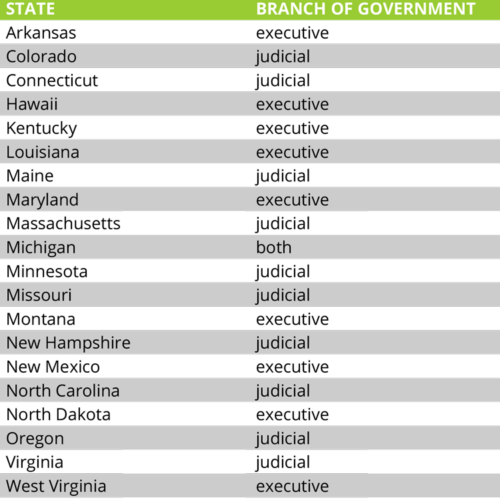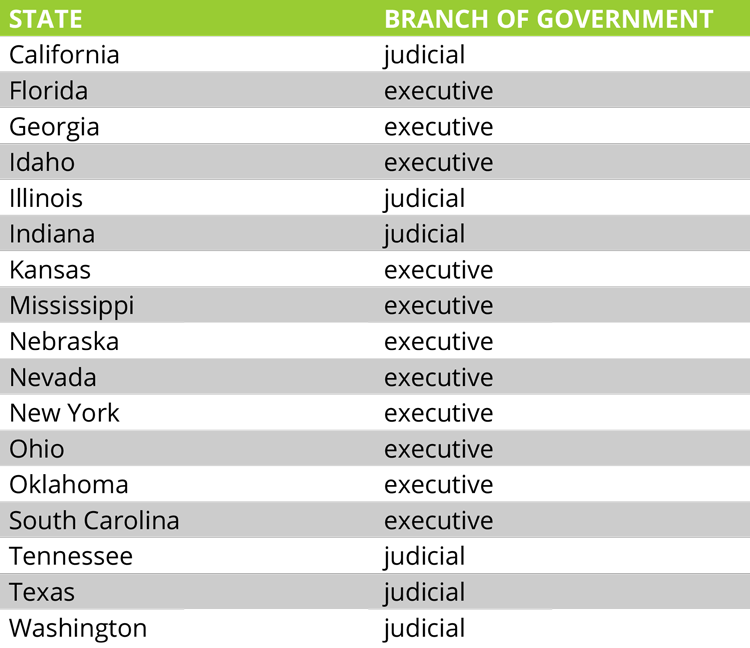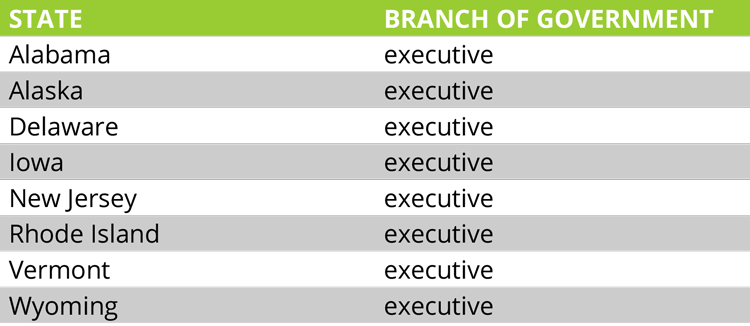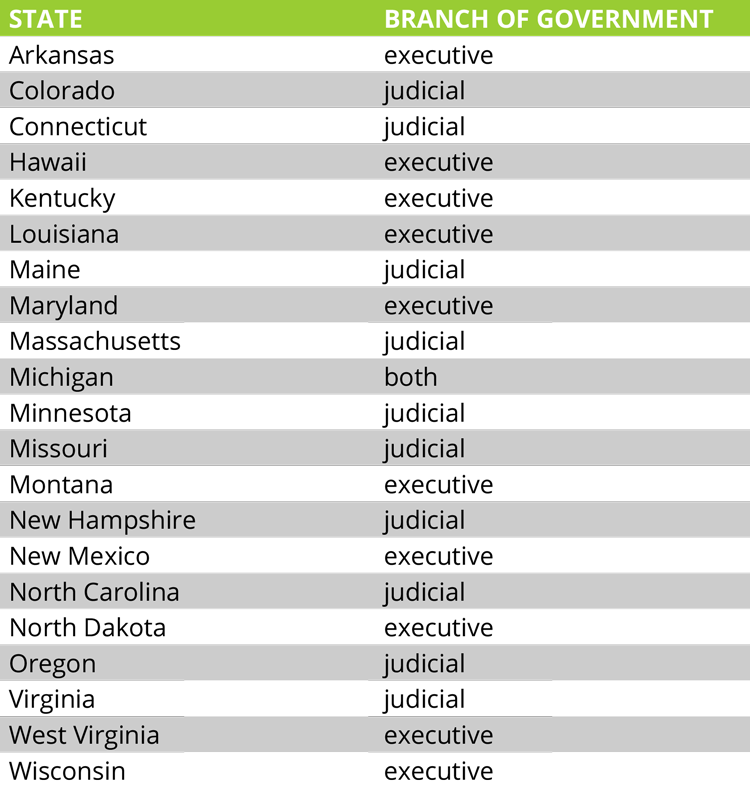Judicial Branch or Executive Branch?

Q: Is it better for an indigent defense system to be housed in the judicial or executive branch of government?
A: No, it makes no difference.
An American Bar Association (ABA) report on state indigent defense commissions concludes, “experience shows that there is no clear advantage to location in the judicial or executive branch.” What the ABA does conclude as important to the success of an indigent defense commission is that statutory language ensure that the commission is “independent” no matter in which branch of government it is placed.
For example, Connecticut statutes state that the state’s Public Defender Commission is an “autonomous body within the judicial department for fiscal and budgetary purposes only.” Similarly, in Montana, statutory language states that the Public Defender Commission is established in the department of administration of the executive branch “for administrative purposes only.” The most recently created public defender commission in Idaho establishes the entity within the Department of Self-Governing Agencies – a constitutional provision in Idaho which, though technically still in the executive branch, means that proposed commission will not have to answer directly to the governor.
The ABA’s position is underscored by the fact that the 21 states with statewide commissions overseeing all aspects of indigent defense services are divided evenly between the executive and judicial branches of government. Ten house the commission in the judicial branch of government while ten established their commissions as part of the executive branch of government. One state, Michigan, has two commissions. The commission overseeing trial level services resides in the executive branch while the appellate commission is housed in the judicial branch.
Seventeen additional states have some other form of statewide component responsible for a portion of the state’s right to counsel obligations (for example, a post-conviction defender or a state funding pass-through agency), which are likewise divided evenly between the executive and judicial branches of government.
Statewide components by branch

Of the states with statewide indigent defense systems responsible for all right to counsel services in all types of cases, but with no commission overseeing services, all eight are housed in the executive branch of government.
Statewide systems with no commission

The remaining four states — Arizona, Pennsylvania, South Dakota, and Utah — have no statewide component whatsoever.



